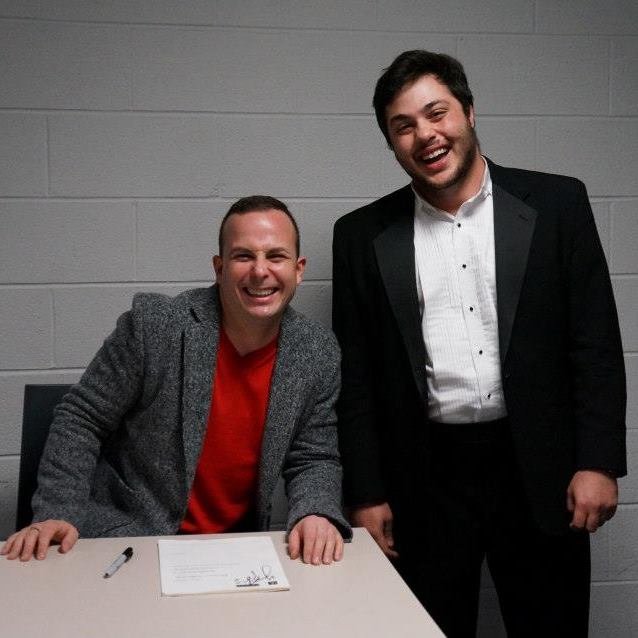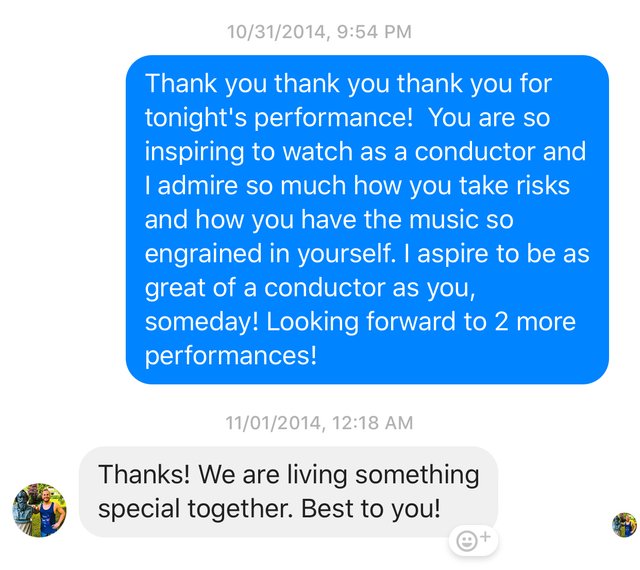This isn't a Dictatorship, it's a Dictocracy!

“I didn’t expect you guys to come out of six hours of vocal auditions with so much energy.” said Erinn Sensenig, my girlfriend and Soprano in Verdigris. It was true. After listening to over twenty singers in the span of six hours, I along with a committee of Verdigris singers, felt inspired, energized, and excited for our 2018-19 season. I certainly wasn’t surprised that I was feeling this way because Verdigris is my baby, my vision, my passion. But when I thanked our choir committee for the time they donated and their commitment to the ensemble, I expected them to say something along the lines of “you’re welcome” and then walk out the door feeling exhausted and ready to do something else. Instead, their response was “No, thank you. As singers in professional ensembles, no one ever asks for our input and we appreciate that you are allowing us to have a voice in this organization.” These singers had built such a strong community that they were willing to volunteer their time to help in ways that were more than singing in the ensemble.
We are experiencing a significant change in the personality of what a conductor’s role is within an ensemble. A New York Times reporter followed brand new Met Opera conductor, Yannick Nezet-Seguin, for a day and noted that the generational shift in incoming conductors is astounding - they are breaking the culture of ‘you cannot voice your opinion to the maestro.’ (source) In fact, they welcome it! By taking feedback, creating relationships, and fostering community with musicians within the orchestra, Nezet-Seguin’s orchestras not only love him, but are ready to fully commit to his vision.
"An orchestra is 100 individuals who have the possibility and power to be united in purpose, and yet still give 100 percent individually," Yannick Nezet-Seguin says. "If everyone gives their all, it multiplies into something much richer." (source)

Yannick Nezet-Seguin answering a Facebook message promptly after the first performance of Beethoven's 9th Symphony with the Philadelphia Orchestra.
As a junior music major at Westminster Choir College in 2014, I was afforded the opportunity to sing under Yannick Nezet-Seguin during Philadelphia Orchestra’s run of Beethoven’s 9th Symphony with the Westminster Symphonic Choir. It is an understatement to say that it was one of my mountain-top experiences. It wasn’t even necessarily because of the music (though you can’t get much better than the 9th symphony), but because I felt intrinsically connected to the conductor and his musical vision. During breaks, Yannick would come down to meet every choir member, shake their hand, and sign their music score. When we posted about our experience on social media, he would ‘like’ it. When we sent private messages to him, he would respond. As a result, Yannick was one of the first conductors we ever sang for that made the entire Westminster Symphonic Choir fall in love with him. And when it came down to performance, we fully committed to his vision because we felt connected to him and the orchestra.
As organizational leaders, we hire professional musicians with years of experience and training. We would be remiss to ignore this and operate solely on our own intuition, interpretation, and skill. Since a more democratic music-making process can feel unproductive and slow-moving without proper structure, here are some ways to build a framework to encourage productive systems for soliciting and receiving feedback from musicians.
The vision of the ensemble aligns with the musician’s personal identity - musicians have to understand what the ultimate goal of a musical organization is. What are we doing? Why are we doing what we’re doing? Why should someone care about this? What niche is this organization fulfilling in our city? It is important to note that the musician’s personal identity can grow to align with the vision of the ensemble.
The musician trusts that they will receive value from the organization - the obvious value that first comes to mind is money, but this form of value is not always the most effective. Many musicians also take into account the musical value: is the music interesting? Will this make me grow as a musician? Finally, musicians want to know that there is contribution value: Will my contribution really make a difference? Will my voice be heard?
The musician knows how they can contribute - Many musicians want to contribute beyond their rehearsals. Almost all Verdigris Ensemble musicians participated in at least three extra-organizational events that were unpaid, from attending a monthly happy hour to sitting in on auditions for six hours to joining the board of directors. Think about how your organization can offer musicians a variety of ways to contribute their talents and interests.
Everyone needs to give and feel gratitude - Everyone. Everyday. Everywhere. For everything they do. In the execution of a non-profit organization, it is easy to focus on the unfinished items and overlook the things that have been accomplished. Take time to recognize the contributions - paid and unpaid - of the professional musicians you’ve hired. Verdigris is stronger because our musicians are actively engaged with our mission even outside of rehearsal and performance. Demonstrating gratitude keeps this cycle vibrant and resentment-free.
Openness is key - We as conductors must have a secure sense of who we are as musicians and have a clear understanding of our mission and vision. From this place of clarity and self-assurance, we are able to be open to the feedback of the professional musicians with whom we make music.
“The most important thing, as a journey in life for any human being, is to learn to know yourself and then accept to be yourself, and work for it. By choosing beauty, art, you have chosen humanity. You have chosen to give dreams to the world. You have chosen to give peace, hope, pleasure, enjoyment, but also relief in difficult times. The world you are in, Class of 2015, is not an easier world than in my time. It’s a more difficult world. It’s a harder, harsher world, which needs more than ever what you have chosen to do; more than ever. And in ten years’ time, I am convinced of this and I hope you will that music and art is what people will need, even more. In a faster paced world, in a world that’s so predictable that it becomes unpredictable, we have the baggage of history, of beauty, and you are the messengers. Learning to be yourself also means to accept our failures. It also means to accept that we will never be perfect, even if we strive for perfection. Believe me; I believe that you are as perfect as you can be for twenty-year-old-something people. I don’t know anyone else that can be more beautiful people than you in the world. And yet, you will always change, morph, develop, and this is why what we do is so essential and so beautiful, and will also inspire the others.”
Yannick Nezet-Seguin, 2015 Commencement Speaker at Westminster Choir College (source)
https://medium.com/@info_47889/this-isnt-a-dictatorship-it-s-a-dictocracy-b900f5fea967
copy/paste without source recognition = plagiarism
copy/paste without adding value = abuse
Hi @qsounds, we crosspost to Medium. Thanks for being on the lookout for abuse and plagiarism, but this is not that. I can prove that if needed.
Congratulations @sbrukh! You received a personal award!
You can view your badges on your Steem Board and compare to others on the Steem Ranking
Vote for @Steemitboard as a witness to get one more award and increased upvotes!